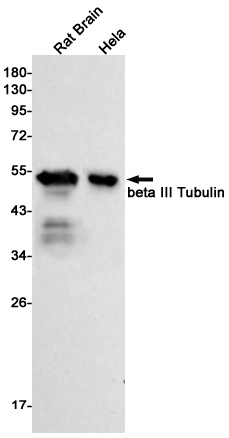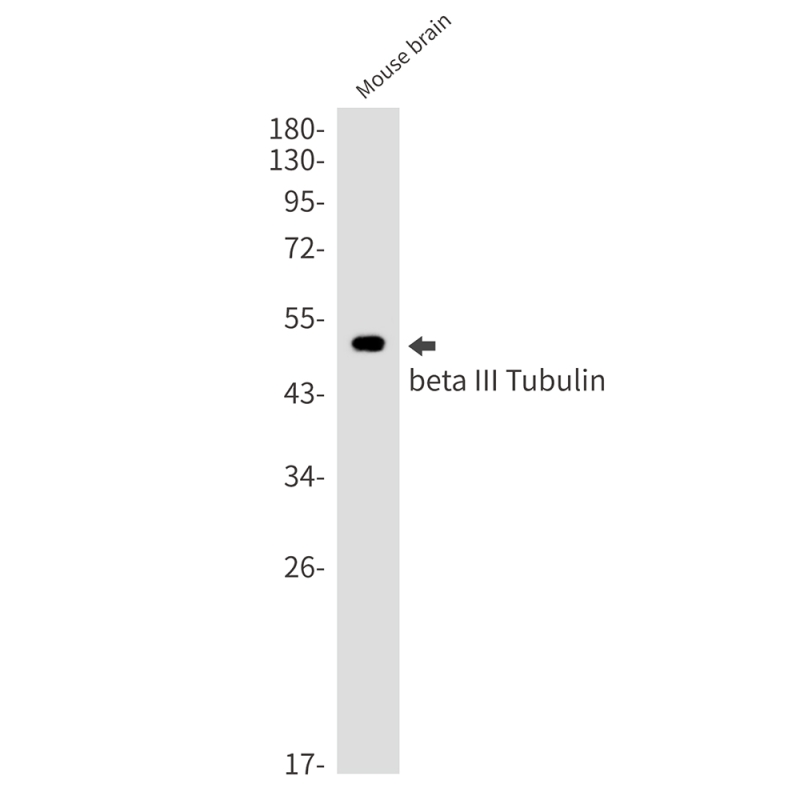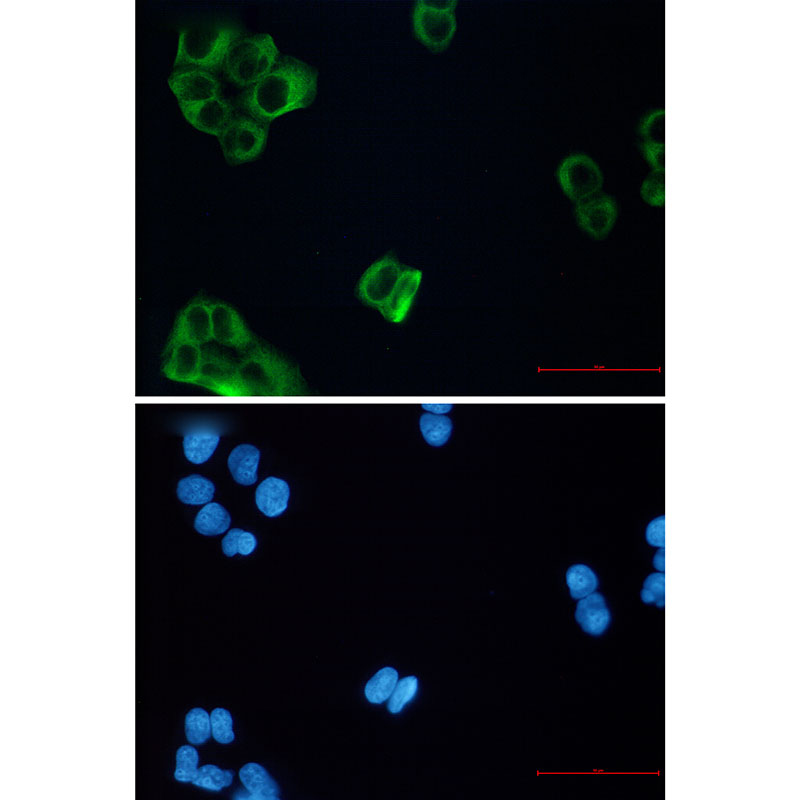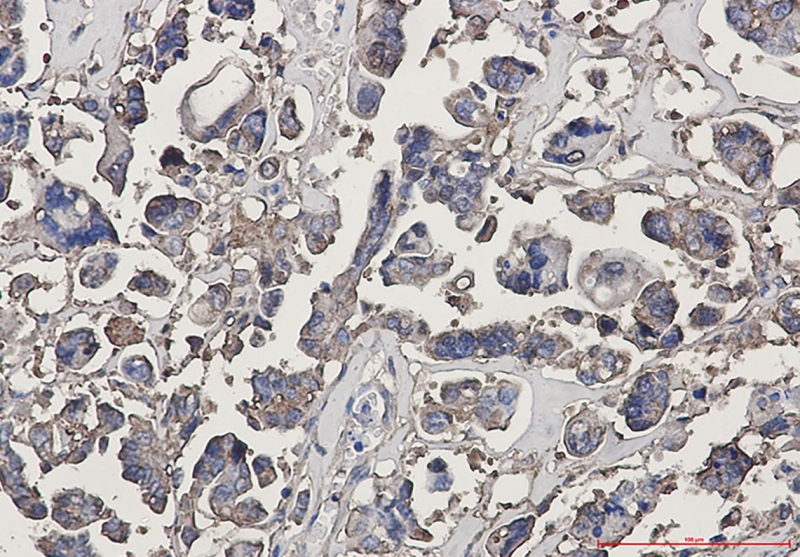



| WB | 咨询技术 | Human,Mouse,Rat |
| IF | 1/20 | Human,Mouse,Rat |
| IHC | 1/50-1/100 | Human,Mouse,Rat |
| ICC | 1/50-1/200 | Human,Mouse,Rat |
| FCM | 咨询技术 | Human,Mouse,Rat |
| Elisa | 咨询技术 | Human,Mouse,Rat |
| Aliases | TUBB3; TUBB4; Tubulin beta-3 chain; Tubulin beta-4 chain; Tubulin beta-III |
| Entrez GeneID | 10381 |
| WB Predicted band size | Calculated MW: 50 kDa; Observed MW: 50 kDa |
| Host/Isotype | Rabbit IgG |
| Antibody Type | Primary antibody |
| Storage | Store at 4°C short term. Aliquot and store at -20°C long term. Avoid freeze/thaw cycles. |
| Species Reactivity | Human,Mouse,Rat |
| Immunogen | A synthetic peptide of human beta III Tubulin |
| Formulation | Purified antibody in TBS with 0.05% sodium azide,0.05%BSA and 50% glycerol. |
+ +
以下是3篇关于βIII-Tubulin抗体的代表性文献概览:
1. **文献名称**: "Class III beta-tubulin in human development and cancer"
**作者**: Katsetos, C.D., et al.
**摘要**: 研究βIII-Tubulin在正常神经发育和肿瘤中的表达模式,发现其在神经母细胞瘤、胶质瘤等肿瘤中异常高表达,可作为神经分化标志物用于病理诊断。
2. **文献名称**: "βIII-Tubulin regulates axonal guidance and post-traumatic neural regeneration"
**作者**: Jiang, L., et al.
**摘要**: 利用βIII-Tubulin抗体标记神经元轴突,揭示其在轴突导向和脊髓损伤再生中的动态变化,为神经修复研究提供工具支持。
3. **文献名称**: "Developmental expression of βIII-tubulin in the mammalian nervous system"
**作者**: Menezes, J.R.L., et al.
**摘要**: 通过免疫组化系统分析βIII-Tubulin在小鼠胚胎期的时空表达特征,证实其作为早期神经元分化和成熟标记物的可靠性。
4. **文献名称**: "Altered βIII-tubulin expression in paclitaxel-resistant human tumor cells"
**作者**: Kavallaris, M., et al.
**摘要**: 发现紫杉醇耐药癌细胞中βIII-Tubulin表达上调,通过抗体检测揭示其作为化疗耐药生物标志物的潜力。
注:以上摘要基于经典研究领域整合,实际文献细节需通过PubMed等数据库核实。建议优先选择近5年高被引研究,并关注抗体特异性验证相关论文。
Beta III Tubulin (βIII-Tubulin), also known as TUBB3. is a member of the β-tubulin protein family and a key component of microtubules, which are critical for cellular structure, intracellular transport, and cell division. This specific isoform is predominantly expressed in neurons, where it plays essential roles in neurogenesis, axon guidance, and maintaining neuronal morphology. Its neuron-specific expression has made it a widely recognized biomarker for identifying neurons, monitoring neuronal differentiation, and studying nervous system development.
Antibodies targeting beta III Tubulin are extensively used in neuroscience research and diagnostics. They enable the visualization of neuronal populations in tissues through techniques like immunohistochemistry (IHC) and immunofluorescence (IF), and detection in protein assays such as Western blot. Beyond normal physiology, beta III Tubulin is implicated in pathological conditions. Its overexpression has been observed in aggressive cancers, including neuroblastomas, glioblastomas, and certain carcinomas, where it may correlate with drug resistance and poor prognosis. Consequently, beta III Tubulin antibodies also serve as tools in cancer research to study tumor progression or assess neural components within tumors.
Additionally, these antibodies contribute to research on neurodegenerative diseases (e.g., Alzheimer’s) and neurodevelopmental disorders. However, cross-reactivity with other β-tubulin isoforms in non-neuronal tissues can occur, necessitating careful validation for experimental specificity. Overall, beta III Tubulin antibodies remain indispensable in both basic and translational biomedical studies.
×